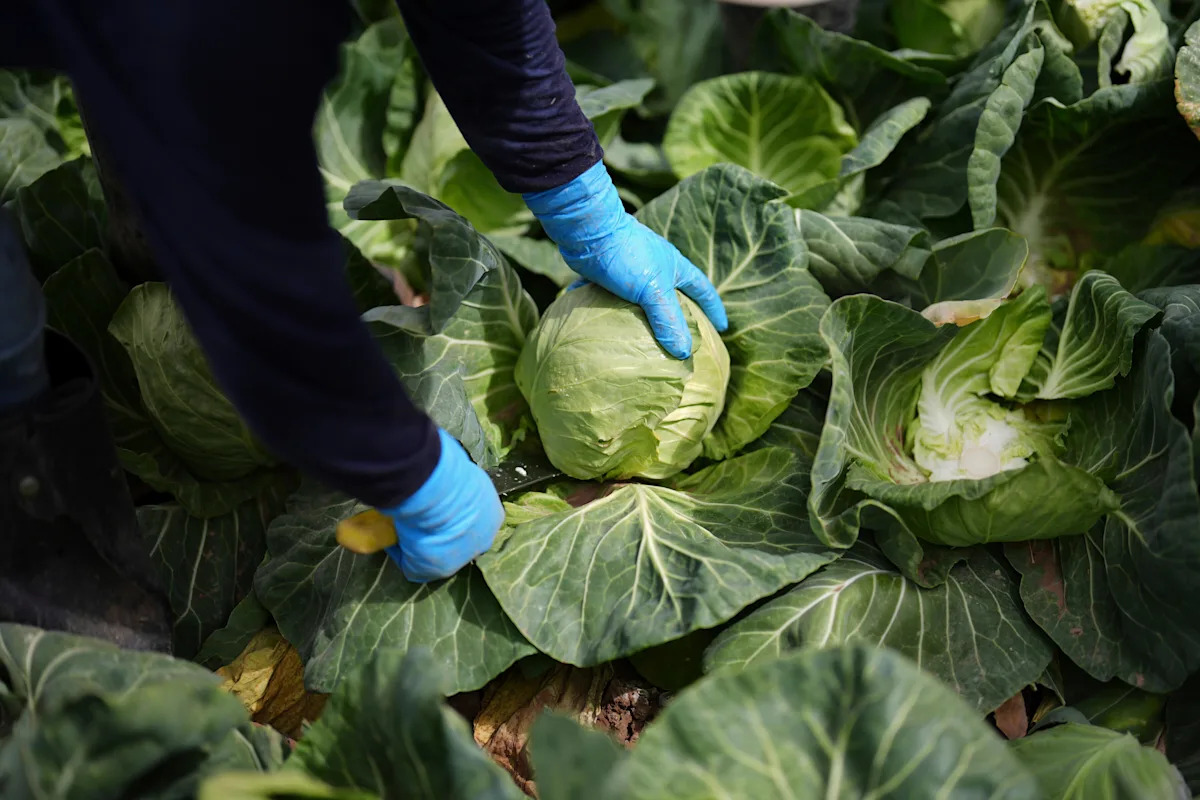About 15 million deaths can be avoided every year and the agricultural emissions can fall by 15% when people worldwide shift to healthier, mainly vegetable diets, according to the Eat-Lancet Commission, which brought scientists worldwide to revise the latest data on the role of food in human health, climate change, biodiversity and working conditions and lifetime conditions and lifetime conditions and lifetime conditions.
Their conclusion: without substantial changes in the food system, the worst effects of climate change will be inevitable, even if people successfully switch to cleaner energy.
“If we do not switch from the non-durable food path that we are on today, we will fail in the climate agenda. We will fail in the biodiversity agenda. We will fail in food security. We will fail on so many paths,” said research coo author Johan Rockström, which leads the Potsdam Institute for Climate-Impact research.
The first report of the committee in 2019 was considered a “real monumental historical study” because of its willingness to take the reform of the food systems seriously during invoicing in human health and the environment, said Adam Shriver, director of Welfare and Nutrition at the Harkin Institute for Public Policy and Citizen Engagement.
Important points of the latest report:
A ‘planetary health diet’ could prevent 15 million deaths every year
The first EAT-Lancet report presented a “planetary health diet” on grains, fruit, vegetables, nuts and legumes. The update claims to improve their health and at the same time reduce global warming, it is a good idea for people to eat one of each of the animal proteins and dairy products per day, while the red meat is limited to approximately once a week. This applies in particular to people in developed countries who contribute disproportionately to climate change and have more choices about the food they eat.
The nutritional recommendations were based on data on risks of diseases to be prevented such as type 2 diabetes and cardiovascular disease, not for environmental criteria. Human and planetary health happened to be in line, the researchers said.
Rockström said it may seem “boring” for an analysis to reach the same conclusion six years later, but he finds this reassuring because food science is a fast -moving field with many large studies and improving analyzes.
Food is one of the most personal choices that a person can make, and “the health component touches everyone’s heart,” said Rockström. Although tackling worldwide challenges is complicated, what individuals can do is relatively easy, such as reducing meat consumption without eliminating it completely.
“People associate what they eat with identity,” and strict diets can scare people, but even help small changes, said Emily Cassidy, a research officer in draining climate science non -profit. She was not involved in the investigation.
Our food choices can push the planet past a tipping point
The researchers looked beyond climate change and greenhouse gas emissions such as biodiversity, land use, water quality and agricultural pollution – and concluded that food systems are the biggest culprit to push the earth to the edge of thresholds for a livable planet.
The report is “super extensive” in his scope, said Kathleen Merrigan, a professor in food systems at Arizona State University that was also not involved in the research. It is going deep enough to show how agricultural and labor practices, consumer habits and other aspects of food production are connected – and can be changed, she said.
“It is as if we have slowly awakened this for the role of food” in discussions about planetary existence, Merrigan said.
Changing worldwide diets alone can lead to a reduction of 15% in greenhouse gas emissions through agriculture, because the production of meat, in particular red meat, requires that many planet -warming gases are released, researchers concluded. Increased crop productivity, reductions of food waste and other improvements can deposit this at 20%, according to the report.
Cassidy said that if the population of countries with a high and average income would limit the consumption of beef and lamb to about one serving a week, as recommended in the latter Eat-Lancet report, they can reduce emissions equal to the annual Russia emission total.
Record the judiciary in an uneven world
In the meantime, the report concludes that almost half of the world’s population is denied enough food, a healthy environment or decent work in the food system. Ethnic minorities, native peoples, women and children and people in conflict zones are all confronted with specific risks for their human rights and access to food.
With climate discussions from the United Nations around the corner in November, Rockström and other researchers will hope to include leaders around the world scientific perspectives about the food system in their national policy. To do otherwise “takes us in a direction that makes us increasingly vulnerable,” he said.
“I mean, both in terms of the supply of food, but also in terms of health and in terms of stability of our environments,” said Rockström. “And this is a recipe for making societies weaker and weaker.”
___
Follow Melina Walling on x @melinawalling and bluesky @melinawalling.bsky.social.
___
The climate and environmental cover of the Associated Press receives financial support from several private foundations. AP is only responsible for all content. Find the standards of AP for working with philanthropics, a list of supporters and funded coverage areas on AP.org.
